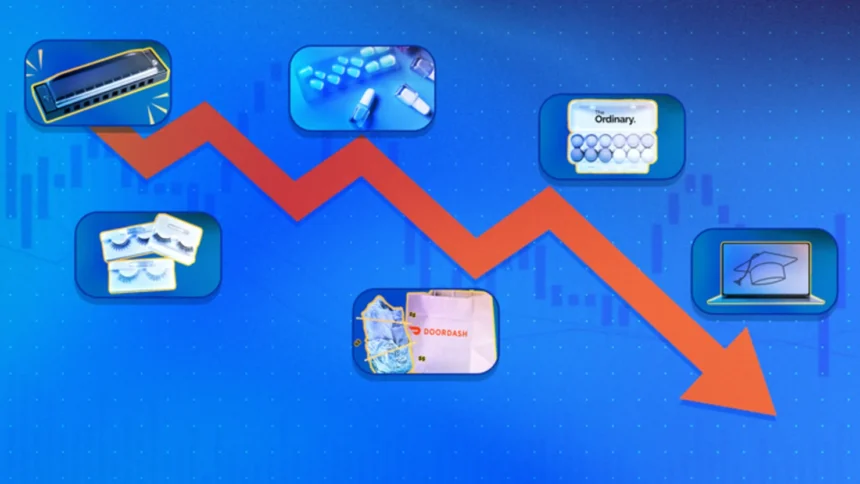For economists, harbingers of a recession can include a slowdown in consumer spending and rising unemployment.
For the chronically online, indicators can range from the perceived fall of fake eyelashes to more commercials for online colleges. Or, maybe, it’s a skin care company selling eggs.
And for Sydney Brams, a Miami-based influencer and realtor, it’s a decline in prices on clothing resale platform Depop.
“I was literally running to my parents and my boyfriend, and I’m like, ‘Look at this. Look, something is very wrong,’” Brams told CNBC after seeing some Depop sellers “come back to Earth,” as she described it. “I feel like Chicken Little.”
Making a joke of so-called recession indicators in everyday life has gained traction in recent weeks as the stock market pullback and weak economic data raised anxiety around the health of the economy. This trend also underscores the uniquely sharp sense of financial dissatisfaction among America’s young adults.
Many of today’s young adults experienced childhood during the Great Recession and came of age as the pandemic threw everything from in-person work to global supply chains out of orbit. Now, they’re concerned about what’s been deemed a white-collar job market slowdown and President Donald Trump’s on-again-off-again tariff policies — the latter of which has battered financial markets in recent weeks.
To be clear, when they share their favorite recession indicators, they’re kidding — but they don’t see the future path of the U.S. economy as a laughing matter.
“It’s gallows humor,” said James Cohen, a digital culture expert and assistant professor of media studies at Queens College in New York. “This is very much a coping mechanism.”
These omens can be found across popular social media platforms such as X, TikTok and Instagram. Some users see cultural preludes to a recession in, say, Lady Gaga releasing her latest album or the quality of the new season of HBO’s “The White Lotus.” Others chalk up social trends such as learning to play the harmonica or wearing more brown clothing as forewarnings of a financial downturn on the horizon.




